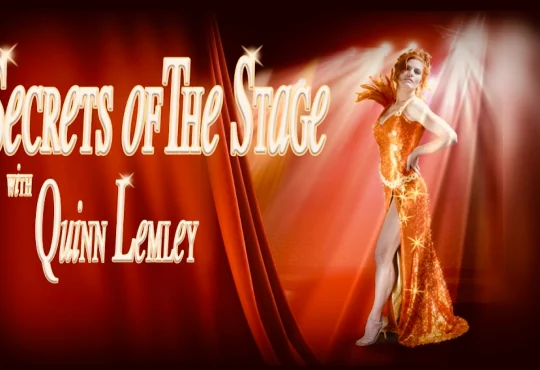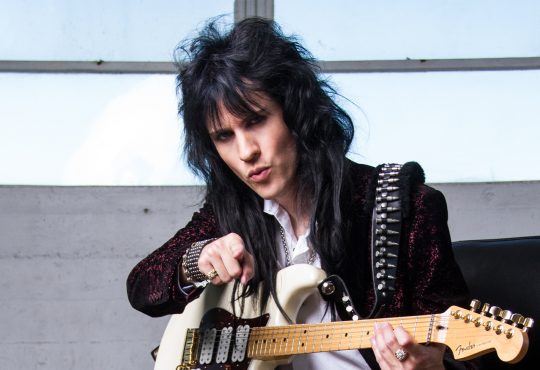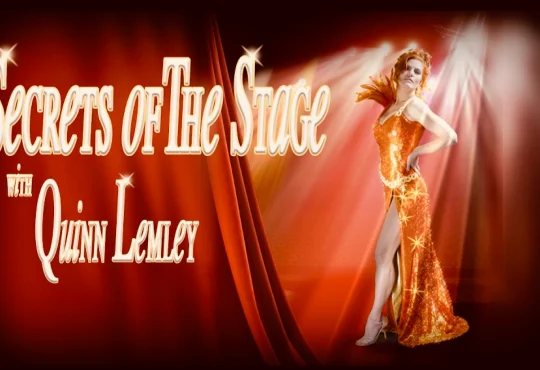‘And Just Like That…’ Is Missing the Funk and the Spunk
This column contains significant spoilers for the first two episodes of And Just Like That…, which are streaming now on HBO Max, as well as more general thoughts on the next two episodes, which will begin streaming over the next two Thursdays.
“We can’t just stay who we were, right?” Miranda Hobbes asks in the opening minutes of And Just Like That…, HBO Max’s sequel series to Sex and the City. When SATC began, Miranda (Cynthia Nixon), Carrie (Sarah Jessica Parker), and Charlotte (Kristin Davis) were all in their early thirties. Now, they are all 55 and in long-term marriages. The ones who have kids are struggling with the displeasures of adolescence — Miranda’s once-adorable son Brady is now a sullen teenager (played by Niall Cunningham) who leaves used condoms on the floor of his bedroom — and all three are grappling in some way with fears about aging. At brunch, Charlotte encourages Miranda to dye her hair back to its signature red color, and Miranda correctly deduces that it makes Charlotte feel old to have a friend who’s gone gray.
Every successful television show is the product of a specific time in the lives of its characters, the people telling their stories, and the audience watching. Pulling any or all of them out of that time is delicate, which is why the recent boom of TV revivals is almost entirely filled with pale recreations of the originals, and sometimes worse. If you make, for instance, Rory Gilmore act the same way at 32 that she did at 16, she’s no longer a likable kid with some growing up to do, but an exasperating woman who never grew up at all.
Few shows were more of a particular moment than Sex and the City. It wasn’t just that three of its four heroines were at that precarious point between young adulthood and middle age, when possibility and pragmatism came into frequent conflict. (Kim Cattrall’s Samantha was a decade older, and had already figured out what she wanted the rest of her life to be like.) It was that the series debuted at the tail end of the go-go Nineties, when there had never been a television show as frank and explicit about sex before. When it was still considered charming to compare Carrie’s on-again, off-again lover Mr. Big (Chris Noth) to Donald Trump. When it seemed perfectly normal that a show about single life in New York focused on four straight white women. Whatever else And Just Like That… does wrong (and it does a number of things wrong) you cannot accuse its creator Michael Patrick King(*) of pretending that it’s still 1998 — or even 2004, when the show ended, or 2010, when the second of two terrible SATC movies was released — or that Carrie, the world, and television haven’t changed in that time. Carrie, Miranda, and Charlotte can’t stay who they were, and neither can the kinds of stories that King tells.
(*) Technically, King is listed as the show’s developer, with Darren Star — who created Sex and the City, then departed after a season under mysterious and seemingly acrimonious circumstances — credited as creator, presumably for legal reasons. But this also means that, despite the title change, this is essentially SATC Season Seven.
From that opening brunch, And Just Like That… makes clear that the passage of time will be a primary theme, both in terms of where the remaining three women are in their lives and in how the world around them is different from the days when they were complaining about funky spunk, or when Carrie was freaking out over the very idea of bisexuality.
First, though, the show has to get some unpleasant real-life business out of the way. Parker and Cattrall are in a seemingly never-ending feud, which means Samantha is gone — not dead, as Charlotte explains, but living in London. In an uncomfortably meta scene meant to cast both Carrie and SJP as the victims, we learn that with Carrie’s career as an author flagging, she felt she no longer needed Samantha’s services as a publicist, and that Samantha was so hurt by the professional rejection that she fled the country and ghosted her three best friends. In many ways, killing her off would have felt more dignified, whereas this rings so false for the Samantha we knew as to just feel like petty revenge for Cattrall refusing to come back.
It would feel strange to continue Sex and the City without its most — and at times only — sex-positive main character, but as the title change suggests, sex is no longer top of mind for any of the women. In an upcoming episode, Miranda confesses to Charlotte that she and Steve haven’t had sex in years, and seems relatively content that they are now just roommates who have a kid together. Charlotte’s primary concern is raising Lily (Cathy Ang) and Rose (Alexa Swinton) with Harry (Evan Handler). The childless Carrie and Big are more amorous than the other two, but it seems that Big’s greatest pleasure comes from introducing Carrie to every album in his record collection one by one. (In the premiere, they enjoy Todd Rundgren’s “Hello, It’s Me.”)
The show also attempts to course-correct for its blindingly white, straight vision of New York by giving each woman a new friend of color. Carrie tries to reinvent herself as co-host of a podcast with Che (Grey’s Anatomy alum Sara Ramirez), a half-Mexican, half-Irish, nonbinary comedian who becomes the first character in the history of the franchise to recognize that celebrated sex columnist Carrie Bradshaw(*) is in fact deeply uncomfortable talking about sex, and that she hides that discomfort by cracking one-liners. (When Charlotte tries to reassure Miranda about Brady by noting that he’s at least practicing safe sex, Carrie quips, “Now that is seeing the condom half-full.”) Charlotte develops a platonic crush on documentary filmmaker Lisa Todd Wexley (Nicole Ari Parker), whose son goes to school with Lily and Rose, and the two are so similar in temperament that Anthony Marantino (Mario Cantone, still with the show’s funniest line deliveries) refers to Lisa behind her back as “Black Charlotte.” Miranda enrolls at Columbia to study human rights, and befriends professor Nya Wallace (Karen Pittman), even as she is constantly putting her foot in her mouth about various matters of race and gender. (The scene where Miranda meets Nya while making an utter fool of herself in front of her and the other students by babbling about Nya’s braids and misgendering a classmate aged me by at least two years.) The season’s fourth episode introduces Sarita Choudhury as Seema Patel, a high-powered realtor with a lot of Samantha Jones energy who befriends Carrie.
(*) The movies revealed that Big’s last name was Preston, and Carrie often goes by her married name here, which may create confusion for some with the great character actress Carrie Preston.
It’s a running gag on the podcast that Che has to keep hitting a button that blares “WOKE MOMENT!” whenever they are scolding the show’s obnoxious male co-host Jackie (Bobby Lee). Viewers may soon wish they had such a button of their own, because the series’ attempts at wokeness — and to position characters who were incredibly progressive for their time as more than just dinosaurs in 2021 — are so often self-conscious and clumsy. Though we get occasional glimpses of the newbies away from the main trio (Chris Jackson plays Lisa’s husband Herbert), they are mostly being viewed through the eyes of the returning characters, rather than as people with their own inner lives. Ramirez gets the most to do of the new quartet, and makes the most of the role, as Che winds up intersecting with character arcs for all the returning women. Though the one glimpse we get of Che performing seems filled less with jokes than with calls for clapter.
The stories about the original women dealing with this new phase of their lives tend to work better, but not in a way that always feels conducive to an ongoing series. In the abstract, it’s realistic that Miranda and Steve — who never had much in common other than Brady to begin with — have settled into a passion-free routine, or that Charlotte has become such a Type A mom. In practice, it feels more like short-term fodder for another reunion movie — no, I am not joking in calling for another movie, despite the first two both turning into a caricature of everything that SATC haters wrongly accused the original show of being — that would offer a brief catch-up with the characters and then say goodbye.

HBO
The dramatic meat of the new episodes comes, inevitably from Carrie and Big. Or, more specifically, from Big’s death at the end of the first episode.
Big and Carrie’s romance was always the messiest element of SATC, and one that King and the other writers never seemed to have full control of. On the one hand, he often treated her like garbage, but on the other, he was treated as Carrie’s obvious soul mate, and ultimately the man to save her from a life of loneliness. (In the original series finale, she escapes a doomed romance with an emotionally distant artist — who accidentally strikes her in the face, no less — to reunite with Big, and eventually to marry him in the first movie.) Both before and after he dies — and hoo boy, we have to talk about the way he dies — And Just Like That… presents him as something akin to a saint. Everyone talks again and again about how he and Carrie were by far the happiest couple that they knew(*). Killing him off perhaps allows the writers to bring Carrie back into the dating world down the road, or just frees Chris Noth from a role he never seemed to enjoy playing, but in the moment, it makes the show more about Big than it’s ever been before. In the next few episodes, Carrie is bereft, desperate to find meaning and purpose in a life without Big. But even when she’s finding brief distraction with Che or Seema or old friends like Willie Garson’s Stanford(**), the show is somehow still all about Big.
(*) At the funeral, Carrie’s old frenemy Susan Sharon (Molly Price) says under her breath, “Am I the only one that remembers what a prick he was to her?” But she is also portrayed as so obnoxious — referring to herself in the third person while turning her later conversation with Carrie into an attempt to elicit an apology for a sin Carrie committed against her waaaaay back in SATC Season Two (and that Carrie doesn’t even remember, even though it ended Susan Sharon’s marriage) — that of course we are supposed to dismiss her brief bit of truth-telling.
(**) Garson died of pancreatic cancer in September after filming the first three episodes, where he once again proved what a gifted comic actor he could be. It’s easy to understand why the creative team would be reluctant to also have Stanford die, thus killing off the two most important men in Carrie’s life within a few episodes of one another. But without spoiling the way in which he’s written out, it does the character very, very dirty. Better to just have him be perpetually off-screen — he was never a central character to begin with, and Anthony could occasionally joke about why his husband is busy doing something else — and then deal with it later if there are additional seasons. The way it’s handled here is awful — even worse, somehow, than Samantha not coming back for Big’s funeral (she sends a flower arrangement and card, but still ignores Carrie’s texts) — and makes a bitter joke of the episode-ending title card paying tribute to Garson.
And let us talk about the way Big dies. Carrie likes to tease Big about his crush on his Peloton instructor, Allegra. In an early scene, Carrie — inspired by Che’s demand that she be more open about her sex life on the podcast — asks Big to masturbate in front of her, and when he reaches for a bottle of lube in his end table, she jokes that she thought he needed his nitroglycerin pills to guard against anything that would remotely strain his weak heart. Sure enough, the two ideas converge in a ludicrously tragic way: While Carrie is with her friends at Lily’s piano recital, Big exerts himself too much on the Peloton, suffering a fatal heart attack as soon as he dismounts the bike. Carrie comes home to find Big still alive but slumped on the shower floor, and rather than run to get the aforementioned nitroglycerin, or call 911, or do anything to try to save the love of her life, she screams his real name, John, over and over as she holds him and watches the life go out of his eyes. The Peloton of it all turns Big’s coronary into a comedy sketch. And because the episode has already drawn attention to both the pill and Carrie’s acute awareness of her husband’s heart condition, his death scene inadvertently becomes all about Carrie not trying to help him. If King wanted Big to die in Carrie’s arms, rather than for her to return to find him already gone, there were ways to do it that wouldn’t so thoroughly distract from the emotions of the moment.
Big’s death also sets up the revival’s most tone-deaf callback to the original series. In the second episode, a funeral director named Jane understandably mistakes the sobbing Charlotte for Big’s widow, rather than the stoic and empty Carrie. Carrie has already decided she wants to have the funeral elsewhere, but an apologetic Jane assumes they are leaving because of her gaffe. “Jane,” Carrie assures her patiently. “It’s not you, it’s me.”
In that moment, and in a number of others throughout the first four episodes, And Just Like That… attempts to pretend that time has, in fact, stood still, and that these are the same women they’ve always been. In the third episode, when Stanford is seated at a restaurant table where he keeps being bumped by the kitchen door, Carrie (who is upset about a surprising clause in Big’s will) offers to swap seats because, “I’m used to getting slammed from behind.” And when Seema complains about a Tinder date who cried after sex, Carrie jokes, “So he was too Tinder?” — a bit of wordplay that it feels like one of the writers has been waiting years to have Sarah Jessica Parker deliver.
For the most part, though, AJLT does away with Carrie’s pun-filled narration, only featuring a brief bit of voiceover at the end of each episode where she ponders the latest sad development in her life. And the new series makes a real, if often awkward and occasionally disingenuous, attempt at modernizing Carrie and the show around her. It just doesn’t work, for the most part. Sex and the City was a frequently great, trailblazing show that also had some unfortunate traits that congealed into those two movies. And Just Like That… has occasional bits that recall the original’s better side, like a lovely and sad image in the third episode of Carrie sitting in front of an enormous landscape painting while waiting to see Big’s ex-wife Natasha (Bridget Moynahan). But too often, even when King and company mean well, the new show gives in to all of SATC‘s worst and sloppiest instincts. Most of it is not terrible, though the parts that are are very, very terrible. As I sat at my laptop by an open window to write this review, I couldn’t help but wonder: Was this revival a good idea?







